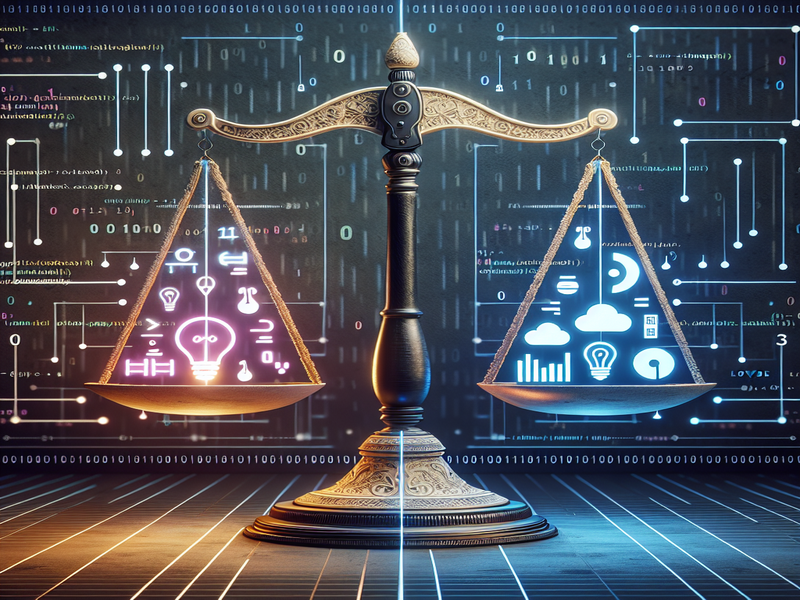- February 27, 2024
- 3 min read
Battle of the Tech: Low-Code AI-Powered Solutions vs Traditional Coding
In the rapidly evolving landscape of technology, the debate between Low-Code AI-Powered Solutions and Traditional Coding continues to spark discussions among tech enthusiasts, professionals, business owners, students, and educators alike. Both approaches offer unique advantages and challenges, catering to different needs and preferences in software development.
Low-Code AI-Powered Solutions have gained significant traction in recent years due to their promise of accelerating the development process and simplifying complex tasks through AI integration. These solutions leverage pre-built components and visual interfaces to enable users to create applications with minimal coding knowledge. The speed and ease of use associated with Low-Code AI solutions make them an attractive option for businesses seeking rapid deployment and scalability.
On the other hand, Traditional Coding remains a cornerstone of software development, providing developers with complete control over the codebase, customization options, and the ability to address intricate technical requirements. While Traditional Coding may involve a steeper learning curve and longer development cycles, it offers unparalleled flexibility and precision in crafting bespoke solutions tailored to specific project needs.
Advantages and Disadvantages
Low-Code AI solutions excel in streamlining development processes, reducing time-to-market, and empowering non-technical users to participate in application creation. However, the reliance on pre-built components and AI algorithms may limit the level of customization and intricate functionalities that can be achieved compared to Traditional Coding.
Traditional Coding, on the other hand, offers unlimited customization possibilities, intricate feature development, and full control over the code structure. Yet, the manual nature of coding can lead to longer development cycles, increased maintenance efforts, and a higher barrier to entry for beginners.
Comparative Analysis
When comparing Low-Code AI-Powered Solutions and Traditional Coding, factors such as development time, complexity, and maintenance play a crucial role in decision-making. Low-Code AI solutions excel in rapid prototyping, iterative development, and quick deployment, making them ideal for projects with tight deadlines and evolving requirements.
Traditional Coding shines in projects that demand intricate logic, custom algorithms, and specialized functionalities that may not be readily available in pre-built components. Developers proficient in Traditional Coding have the advantage of implementing complex features with precision and optimizing performance based on specific project needs.
The Future of Tech Development
As technology continues to advance, the integration of AI capabilities in Low-Code development platforms is expected to enhance automation, predictive analytics, and cognitive functionalities, bridging the gap between simplicity and sophistication in application development. Choosing the right approach between Low-Code AI-Powered Solutions and Traditional Coding depends on project requirements, team expertise, and long-term scalability goals.
In conclusion, the Battle of the Tech between Low-Code AI-Powered Solutions and Traditional Coding underscores the importance of understanding the strengths and limitations of each approach to make informed decisions in software development. Whether opting for the speed and convenience of Low-Code AI or the depth and control of Traditional Coding, tech enthusiasts and professionals must align their choices with the project’s objectives and the evolving landscape of technology.

For more insights on workflow automation and software development, explore our Workflow Automation Studio and stay ahead in the realm of tech innovation.
Andrii Bidochko
CEO/CTO at UBOS
Welcome! I'm the CEO/CTO of UBOS.tech, a low-code/no-code application development platform designed to simplify the process of creating custom Generative AI solutions. With an extensive technical background in AI and software development, I've steered our team towards a single goal - to empower businesses to become autonomous, AI-first organizations.
